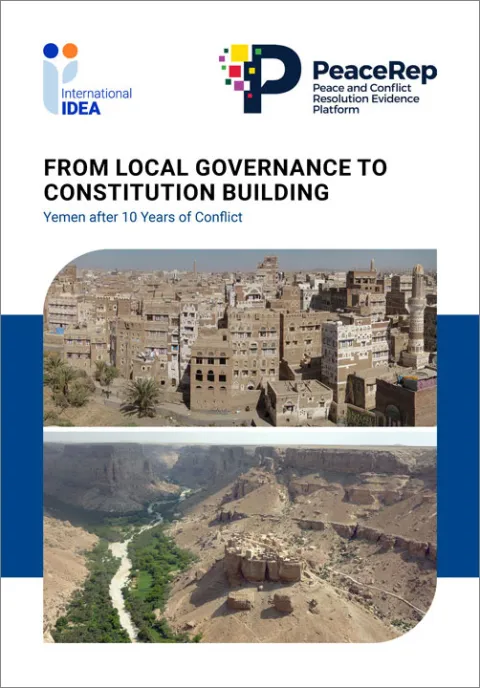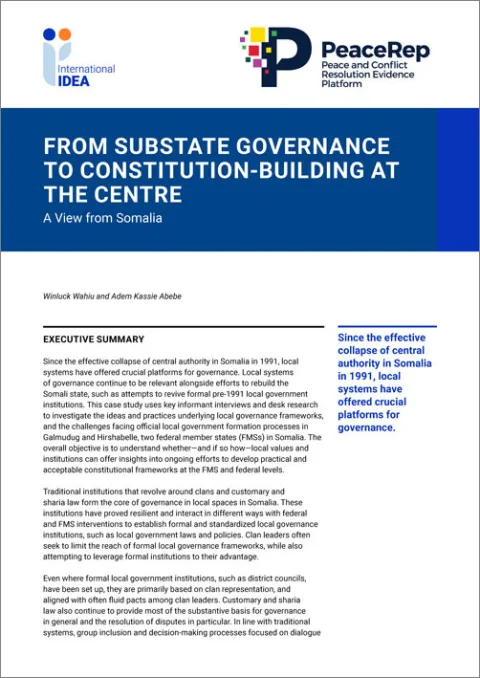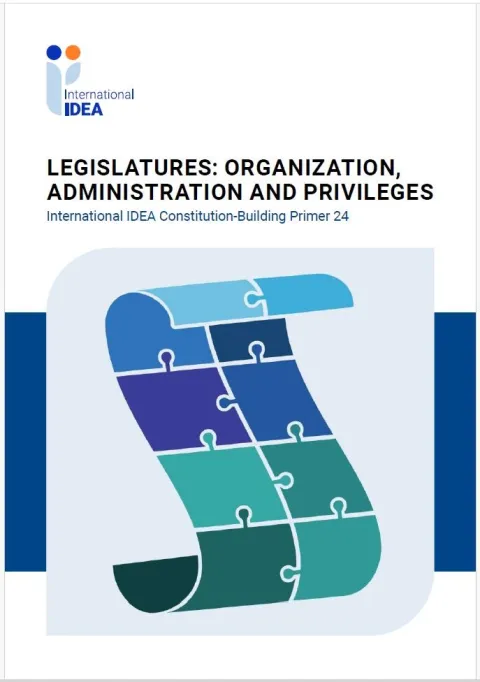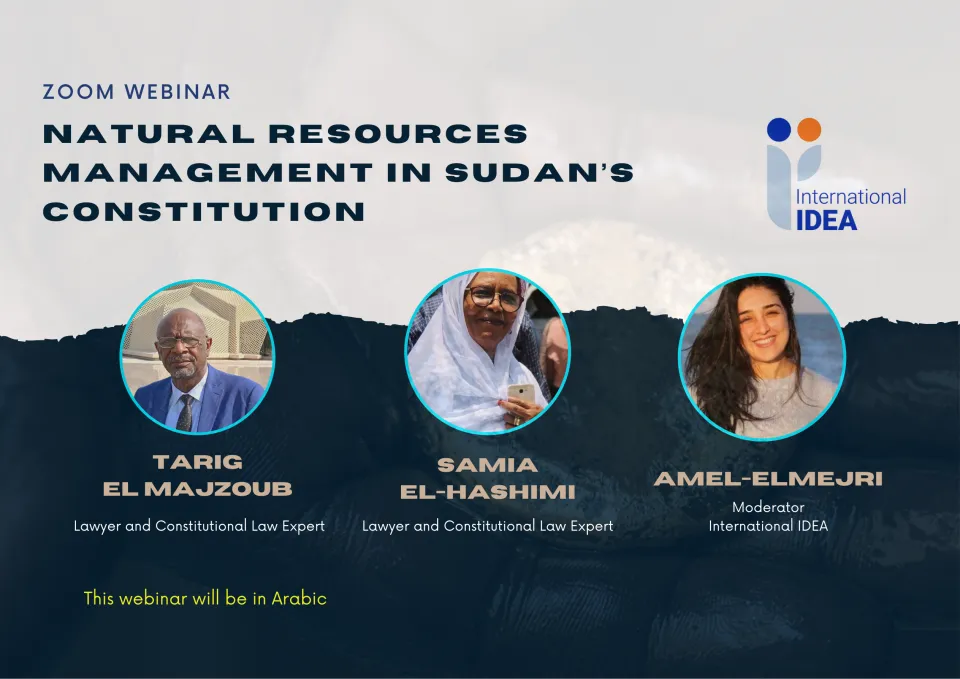Federalism
Federalism is a constitutional mechanism for dividing power between different levels of government, such that federated units can enjoy substantial, constitutionally guaranteed autonomy over certain policy areas while sharing power in accordance with agreed rules over other policy areas. Thus, federalism combines partial self-government with partial shared government.
International IDEA’s Constitution-Building Primers are designed to assist in-country constitution-building or constitutional-reform processes by helping citizens, political parties, civil society organizations, public officials and members of constituent assemblies make wise constitutional choices. They also provide guidance for staff of intergovernmental organizations and other external actors working to provide well informed, context-relevant support to local decision-makers.
Each Primer is written as an introduction for non-specialist readers, and as a convenient aide-memoire for those with prior knowledge of, or experience with, constitution-building. Arranged thematically around the practical choices faced by constitution-builders, the Primers aim to explain complex constitutional issues in a quick and easy way.
This revised and reformatted edition was published in October 2017.
Details
Author(s)
Contents
1. Introduction
2. What is the issue?
3. Advantages and disadvantages of federalism
4. Distribution of powers
5. Asymmetrical federalism
6. The boundaries of constituent units
7. Institutions of government within constituent units
8. Fiscal federalism
9. Federalism and the constitution as a whole
10. Possible alternatives to federalism
11. Decision-making questions
References
Annex
Give us feedback
Do you have a question or feedback about this publication? Leave us your feedback, and we’ll get back to you
Send feedbackFederalism
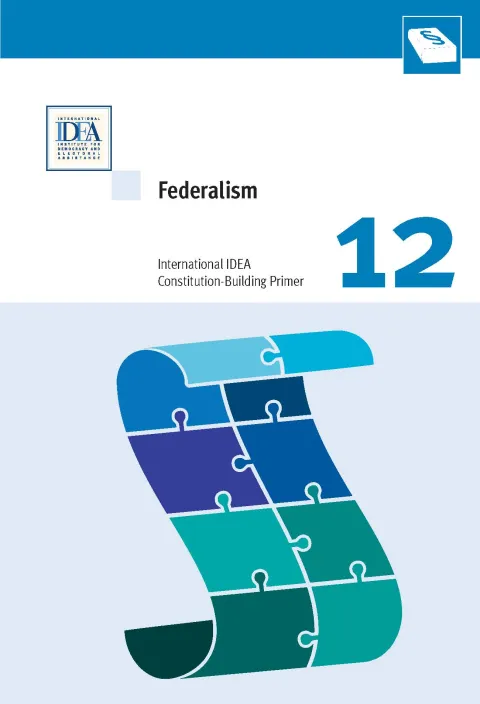
| Total views | 21855 |
|---|---|
| Downloads | 396 |
| Rating |
Authors
Give us feedback
Do you have a question or feedback about this publication? Leave us your feedback, and we’ll get back to you
Send feedback
